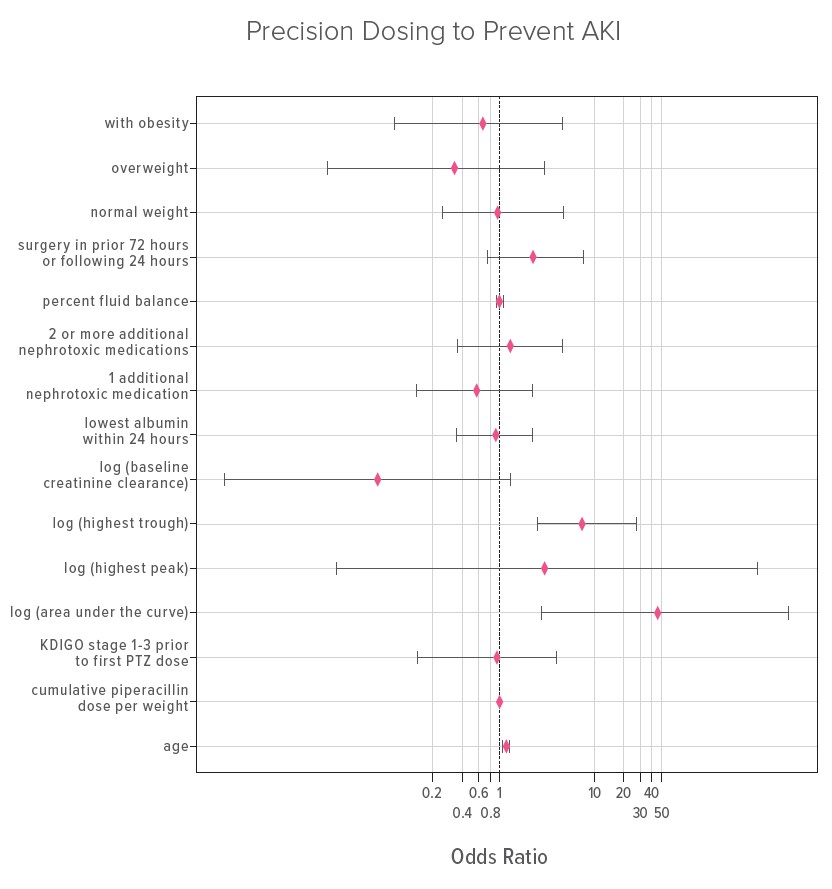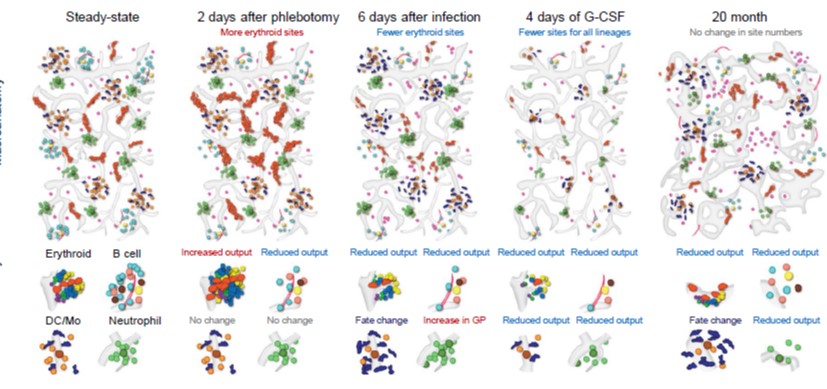Improved Piperacillin Dosing May Lower Risk of AKI in Critically Ill Patients
Research By: Sonya Tang Girdwood, MD, PhD | Stuart Goldstein, MD
Post Date: February 1, 2023 | Publish Date: Feb. 1, 2023
Hospital Medicine | Top Scientific Achievement


Precision dosing for antibiotics like piperacillin/tazobactam in critically ill children may help lower the risk of adverse effects, including acute kidney injury (AKI). That’s because total piperacillin/tazobactam exposure early in each patient’s course of treatment is linked with a higher risk of AKI development.
A recent study led by first and corresponding author Sonya Tang Girdwood, MD, PhD, and senior author Stuart Goldstein, MD, sheds light on the link between this commonly used antibiotic combination and AKI.
Piperacillin/tazobactam is frequently used to treat critically ill children with systemic infections. While there is a known association between piperacillin/tazobactam and AKI, the exact relationship between piperacillin concentrations and AKI remains unclear.
This study estimated piperacillin/tazobactam exposures in 107 critically ill children and young adults to identify concentrations and clinical factors associated with AKI. Specifically, the team measured piperacillin area under the curve (AUC), highest peak and highest trough after administration. They then evaluated AKI after dosing, as defined by “Kidney Disease: Improving Global Outcomes Stage 2/3.” Finally, the team performed a regression analysis to identify patient and clinical predictors of piperacillin-associated AKI.
Researchers demonstrated a relationship between the estimated highest trough in the first 24 hours of piperacillin/tazobactam therapy and piperacillin-associated AKI.
“Beta-lactam antibiotics have long been thought to be very safe, but there is emerging evidence that some of them may cause toxicity. This is especially true in critically ill patients with kidney dysfunction since the antibiotics are cleared by the kidney,” Tang Girdwood says.
Next steps for this research include understanding the mechanisms connecting piperacillin/tazobactam and AKI, as well as studying the relationship between the antibiotics and non-creatinine AKI biomarkers. Ultimately, the researchers seek to develop model-informed precision antibiotic dosing to reduce antibiotic-associated AKI incidence in critically ill patients.
More 2023 Research Highlights
Chosen by the Division of Hospital Medicine
Auger KA, Demeritt B, Beck AF, et al. Reducing Caregiver Hunger During Pediatric Hospitalization. Pediatrics. 2023;151(5):e2022058080. doi:10.1542/peds.2022-058080
Sump C, Denker K, DeBlasio D, Ruschman J, White C, Riddle S. Postdischarge Remote Patient Monitoring for Children Hospitalized for Failure to Thrive. Acad Pediatr. 2022;22(8):1529-1531. doi:10.1016/j.acap.2022.07.023
Marshall TL, Nickels LC, Brady PW, Edgerton EJ, Lee JJ, Hagedorn PA. Developing a machine learning model to detect diagnostic uncertainty in clinical documentation. J Hosp Med. 2023;18(5):405-412. doi:10.1002/jhm.13080
Musial A, Schondelmeyer A, Densel O, et al. Decreasing Time to Full Enteral Feeds in Hospitalized Children With Medical Complexity Experiencing Feeding Intolerance. Hosp Pediatr. 2022;12(9):806-815. doi:10.1542/hpeds.2021-006496
Unaka NI, Hoang M, Hsu J, Dardess P, Casillas CT, Fanta M, Dokken DL, Beck AF. The intersection of diversity, equity, and inclusion with pediatric Patient and Family Advisory Councils. Patient Experience Journal. 2022; 9(3):39-54. doi: 10.35680/2372-0247.1720
View more discoveries from 50 research divisions and areas
Return to the 2023 Research Annual Report main features
| Original title: | Relationship between piperacillin concentrations, clinical factors and piperacillin/tazobactam-associated acute kidney injury |
| Published in: | Journal of Antimicrobial Chemotherapy |
| Publish date: | Feb. 1, 2023 |
Research By


My research is focused on short- and long-term outcomes for children who have AKI and those who are at risk for AKI.





